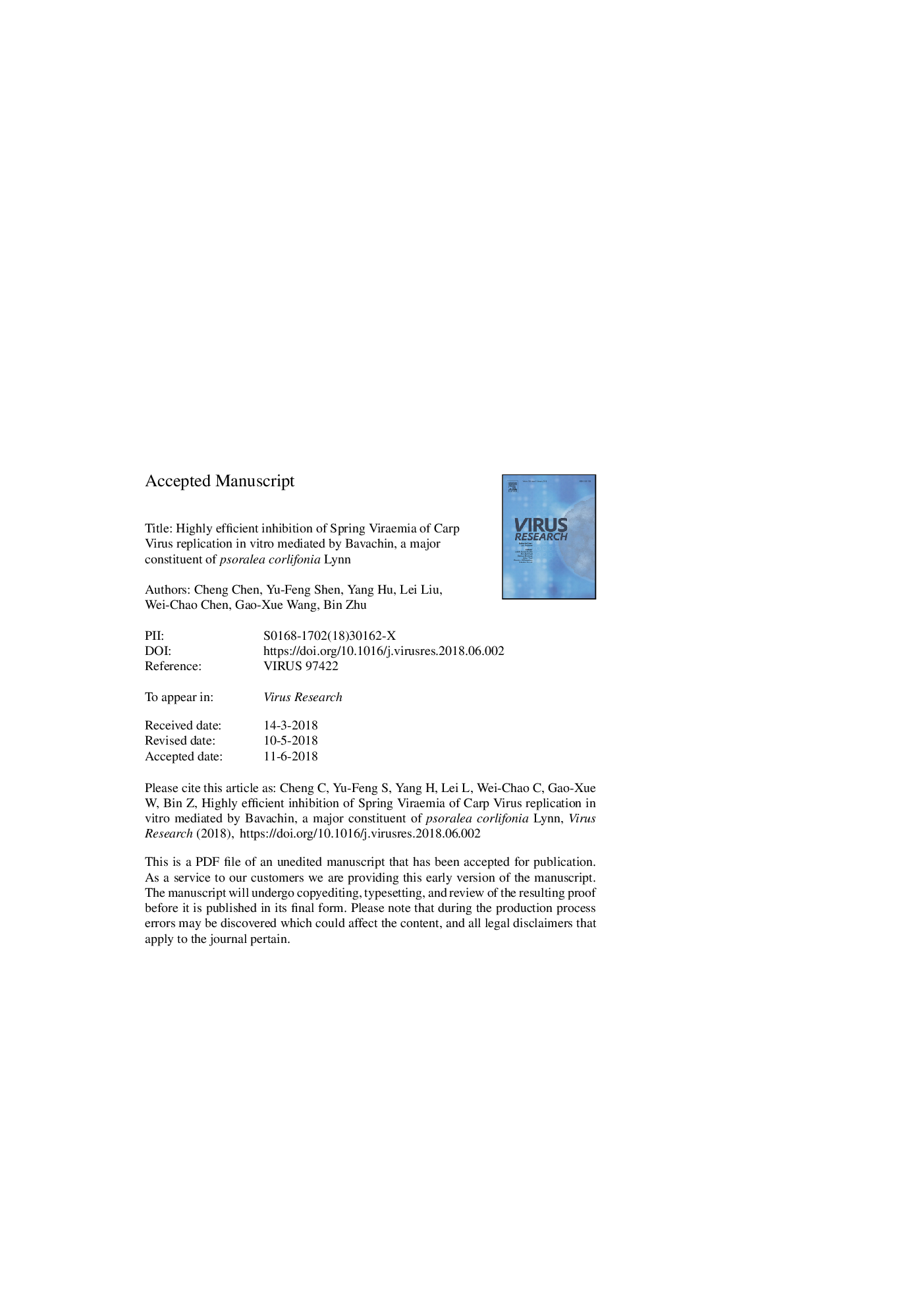| Article ID | Journal | Published Year | Pages | File Type |
|---|---|---|---|---|
| 8751656 | Virus Research | 2018 | 42 Pages |
Abstract
As one of nine piscine viruses recognized by the International Office of Epizootics, spring viraemia of carp virus (SVCV) is an important pathogen bringing high mortality to cyprinids. Up to now, there is no approved therapy on SVCV, making them strong public health threat in aquaculture. In this study, the anti-SVCV activities of 12 plant crude extracts were investigated by using epithelioma papulosum cyprini (EPC) cells. Among these plants, Psoralea corylifolia Linn. showed the highest inhibition on SVCV replication, with an inhibitory percentage of 67.98%. Further studies demonstrated that bavachin (BVN), one of the major constituents of Psoralea corylifolia Linn., was also highly effective to SVCV infection. The half maximal inhibitory concentrations (IC50) of BVN on SVCV glycoprotein and nucleoprotein expression were 0.46 (0.29-0.73) and 0.31 (0.13-0.55) mg/L, respectively. In addition, SVCV-induced apoptosis which may be negative to SVCV replication was inhibited by BVN. The apoptotic cells were decreased 21.42% for BVN compared with SVCV group. These results indicated that the inhibition of BVN on SVCV replication was, in some extent, via blocking SVCV induced apoptosis. Furthermore, cellular morphological damage induced by SVCV was also blocked by BVN treatment. Mechanistically, BVN did not affect SVCV infectivity and cannot be used for prevention of SVCV infection. Time-of-addition and viral binding assays revealed that BVN mainly inhibited the early events of SVCV replication but did not interfere with SVCV adsorption. In conclusion, BVN was considered to develop as a promising agent to treat SVCV infection.
Related Topics
Life Sciences
Immunology and Microbiology
Virology
Authors
Cheng Chen, Yu-Feng Shen, Yang Hu, Lei Liu, Wei-Chao Chen, Gao-Xue Wang, Bin Zhu,
